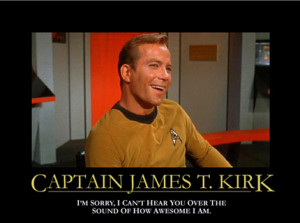Ben Lamorte, coach at okrs.com, tells this story[i] “My mentor and advisor, Jeff Walker, the guy who introduced me to OKRs once asked me, “When you go on a hike, do you have a destination?” I paused since I was not sure where Jeff was going with this so Jeff picked up, “When you hike with your family in the mountains, it’s fine if you like to just walk around and see where you go, but when you’re here at work, you need to be crystal clear about the destination, otherwise, you’re wasting your time, my time, and the time of everyone who works with you.”
Your OKRs set the destination for the team so no one wastes their time.
OKRs are adopted by companies for one of three key reasons
- Focus: What do we do and what do we not do as a company?
- Alignment: How do we make sure the entire company focuses on what matters most?
- Acceleration: Is your team really reaching its potential?
Focus
At Duxter, a social network for gamers, they adopted OKRs to solve a classic startup problem: shiny object syndrome. CEO Adam Lieb writes[ii], “Like all startups we struggle with priorities. Possibly the most used/overused saying at Duxter is “bigger fish to fry.” … We had two big “fish problems.” The first was having competing views of which fish we should be frying. Often times, these drastically different views caused conflict and inefficiency.
The second was our biggest fish seemed to change on a weekly or even daily basis. It became more and more difficult to keep everyone in the company apprised of where their individual focus should be.
Instituting OKRs have helped significantly with both of these problems.”
Alignment
In an interview, Dick Costolo, former Googler and former CEO of Twitter, was asked “What did you learn from Google that you applied to Twitter?” and shared:
“The thing that I saw at Google that I definitely have applied at Twitter are OKRs – Objectives and Key Results. Those are a great way to help everyone in the company understand what’s important and how you’re going to measure what’s important. It’s essentially a great way to communicate strategy and how you’re going to measure strategy. And that’s how we try to use them. As you grow a company, the single hardest thing to scale is communication. It’s remarkably difficult. OKRs are a great way to make sure everyone understands how you’re going to measure success and strategy.”
OKRs are more effective at uniting a company than KPIs because they combine qualitative and quantitative goals. The Objective, which is inspiring, can fire up employees who may be less metrics oriented, such as design or customer service. The KRs bring the point home for the numbers-driven folks like accounting and sales. Thus a strong OKR set can unite an entire company around a critical initiative.
Acceleration
From Re:Work, Google’s official guide to OKRs “Google often sets goals that are just beyond the threshold of what seems possible, sometimes referred to as “stretch goals”. Creating unachievable goals is tricky as it could be seen as setting a team up for failure. However, more often than not, such goals can tend to attract the best people and create the most exciting work environments. Moreover, when aiming high, even failed goals tend to result in substantial advancements.
The key is clearly communicating the nature of stretch goals and what are the thresholds for success. Google likes to set OKRs such that success means achieving 70% of the objectives, while fully reaching them is considered extraordinary performance.
Such stretch goals are the building blocks for remarkable achievements in the long term, or “moonshots”.”
Because OKRs are always stretch goals, they encourage employees to continually push the envelope. You never know what you are capable of until you shoot for the moon.
That said, this is the trickiest aspect of OKRs. Since we are talking moonshots, let me use a Star Trek metaphor.
Scottie always said “The engines canna take it anymore.” Yet somehow he always pulled a miracle out of his hat and made the engines perform anyway. I always wondered when Kirk stopped taking his complaining seriously.
Geordie would say, you have five minutes before the engines give out, and five minutes later the engines would give out. If he knew of a way around it, he’d tell you, but you knew what was going on and could plan for it.
As a captain, do you want someone who likes to be a hero or someone who knows what the company can actually do? I know what kind of captain I’d like to be.
If you tie OKRs to performance reviews and bonuses, employees will always underestimate what they can do. It’s too dangerous to aim high, because what if you are wrong? But if you encourage bold OKRs, and then review based on actual performance, the employee is rewarded based on what they do, not how well they lie.
After all, on the way to the moon, sometimes we get Tang, Sharpies and Velcro. Isn’t that worth rewarding?

KR: One Alien Babe Kissed a week
KR: Five Klingon ships disabled
Kr: Hairs out of place – zero.
[i] https://www.quora.com/What-are-the-key-benefits-of-OKR
[ii] https://7geese.com/why-your-startup-should-use-okrs/